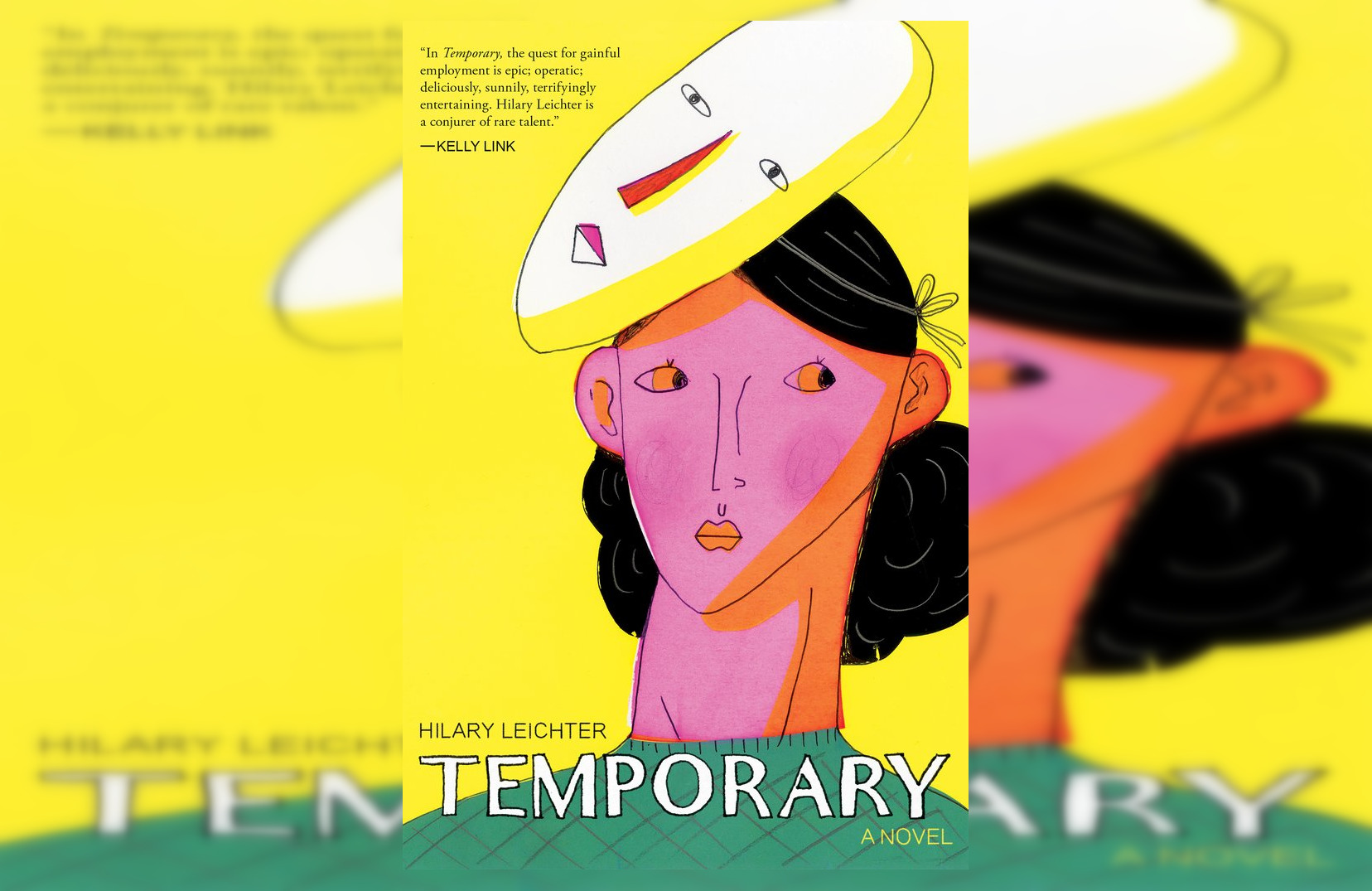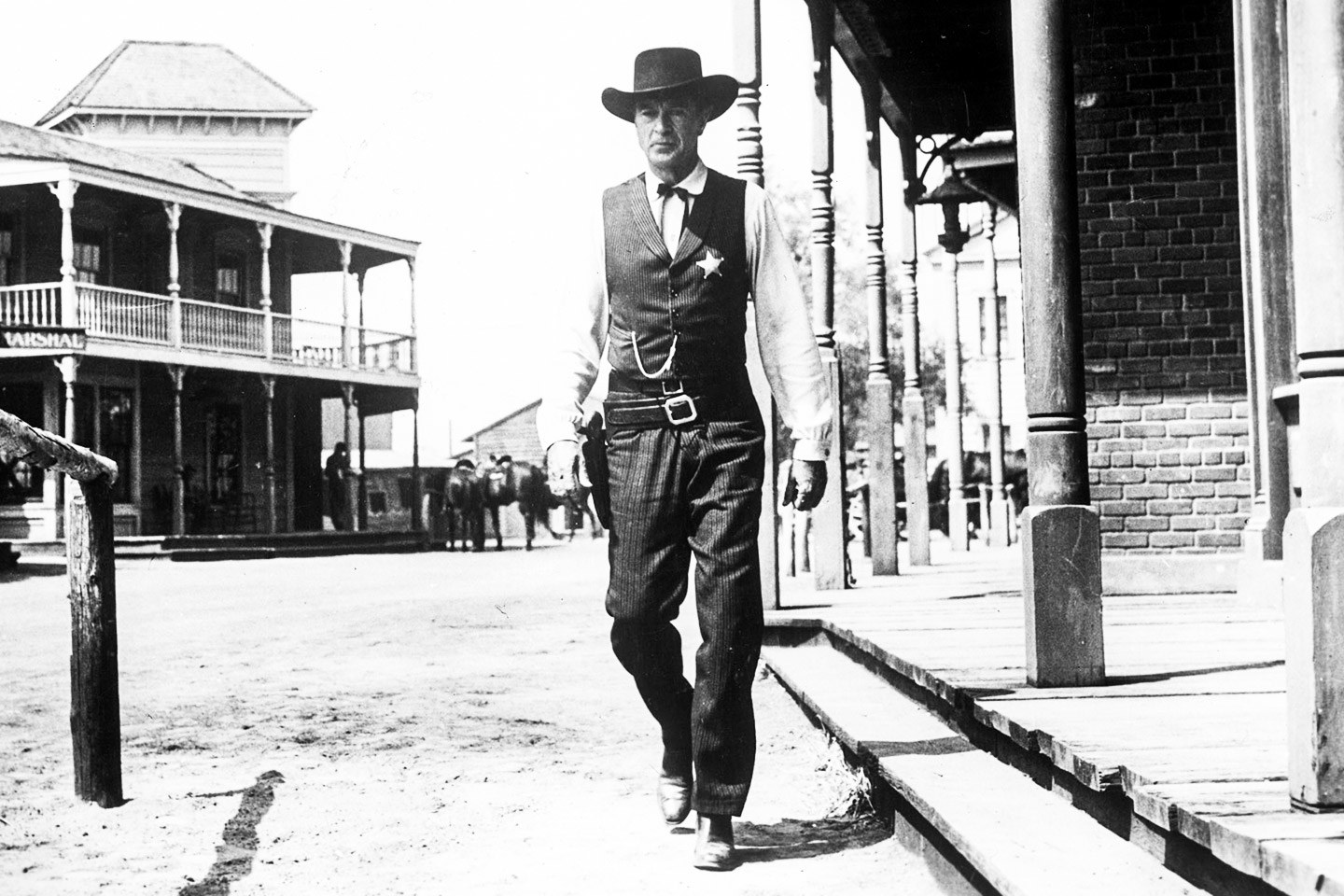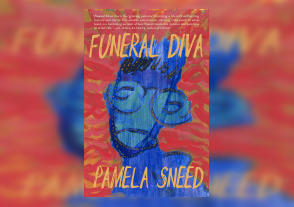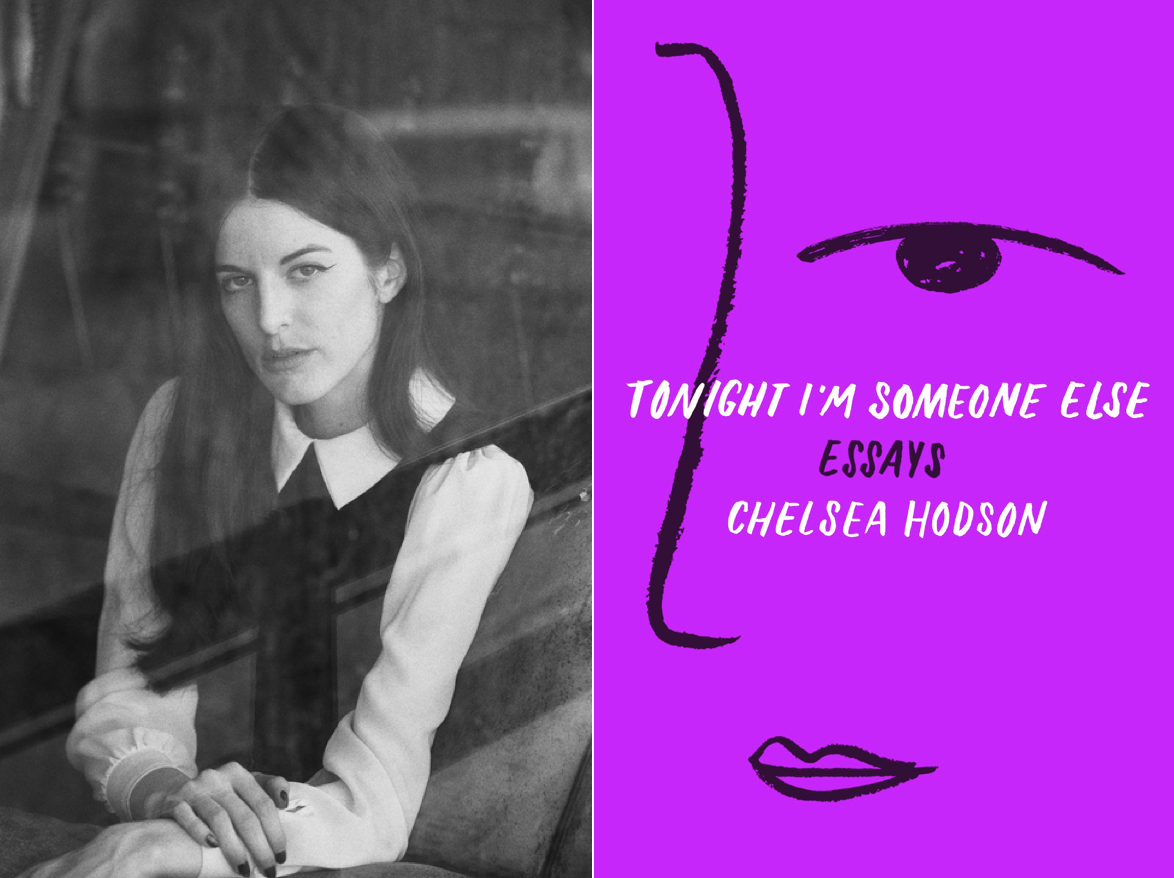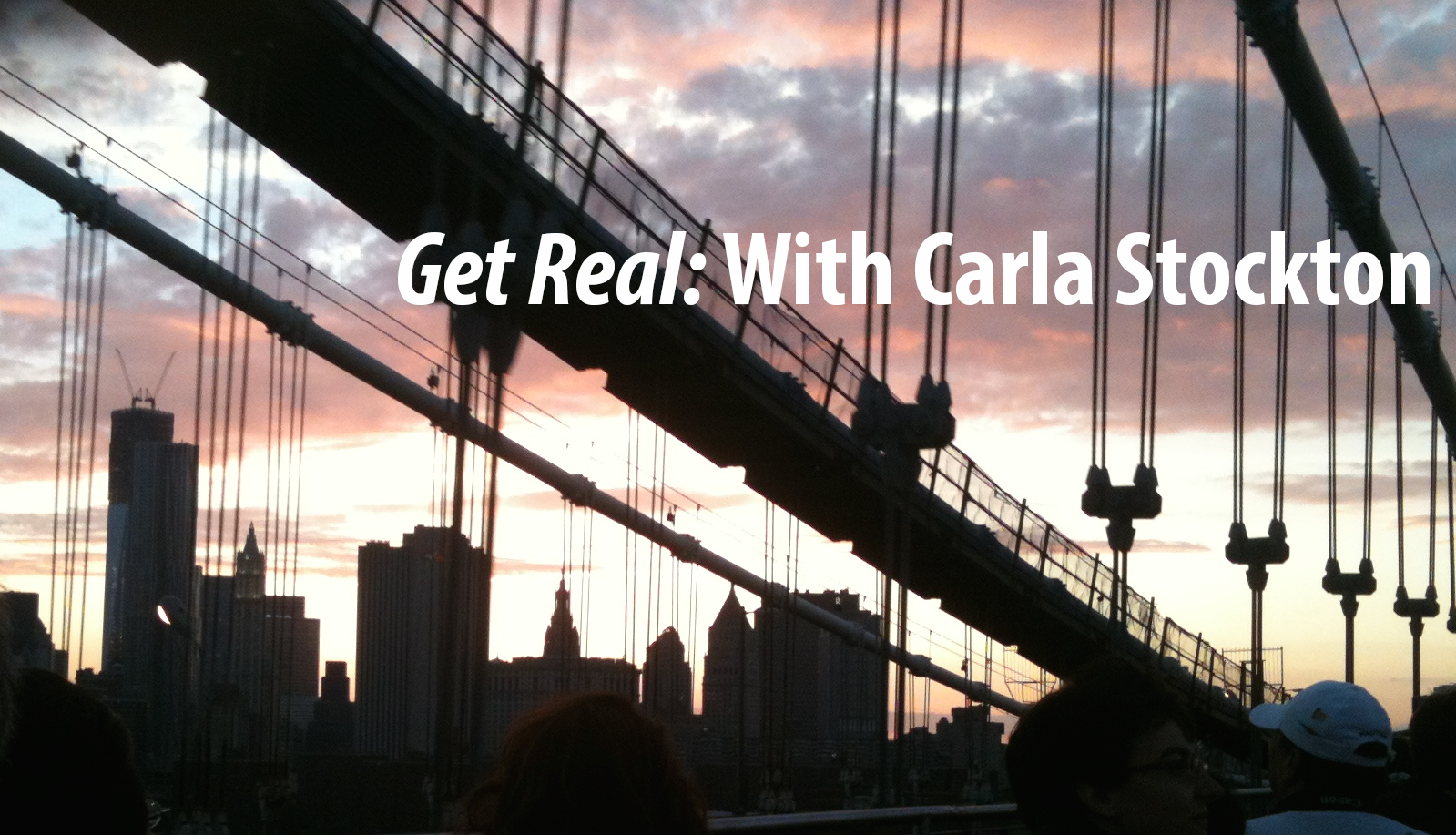Madeline Garfinkle, Columns Editor for the Columbia Journal, sat down with Hilary Leichter to discuss her new book, Temporary, a debut novel that addresses the paradox of work-life balance and what we sacrifice of ourselves for a career. The unnamed narrator, who is a designated Temp, sifts through a series of jobs which include working on a pirate ship, filling in for an endangered species, serving alongside a murderer, and acting as a boy’s mother, just to name a few. The novel brings forth essential questions about the value of work, time, and how life can slip through our fingers.
Hilary Leichter is a writer and teacher with a myriad of short stories, essays, and interviews published in Harper’s, Electric Literature, and n+1, among many others. She has received fellowships from The Edward F. Albee Foundation, the Table 4 Writers Foundation, the Folger Shakespeare Library, and the New York Foundation for the Arts.
Temporary originally started as a short story. What did you want to explore by expanding it into a novel?
Before I started working on Temporary, I was working on another novel and getting absolutely nowhere with it. I went back to my old stuff and reread this story which I hadn’t read in years. I realized it was much more in sync with my life at the moment than the book I was trying to write. Which is not to say you have to write about where you are emotionally and physically, but it was just my daily existence at that moment and it had been since I wrote the short story. I think the thing I wanted to explore is the question: what if that moment that you think is the beginning to your adulthood is actually your whole adulthood and doesn’t change and doesn’t end? Because that was my experience coming back to the story. This moment that I captured turned out to last another five years! And I felt different as a 30-year-old writing about that than I had as a 20-something year-old. Just as I feel differently now talking about this book in my mid-30s. I think our relationship to work is always evolving so it felt like something I would have to interrogate and approach again and again for the rest of my life.
I love what you said about thinking there is some marker of the beginning of adulthood. There’s this weird moment when you have all these ideas about what the world is like and then you realize what it’s actually like. Which relates to this idea of “permanence” in the book — how it’s this holy thing, an ultimate goal. Can you talk a little about this dichotomy between unsteadiness and permanence?
I don’t know that I ever expected work to be something steady because I decided to pursue a career in the arts. So even though I was naïve to certain elements of how bad it could get, I was prepared on some level to not have things happen in the correct order our country tells us we’re supposed to have in order to become someone. I think unsteadiness can create interesting art, but steadiness can allow you to create more art. And I think that if we allowed everyone in this country to have some degree of stability, just think of all the voices we would be able to hear from that we don’t get to hear from now. So, while instability can be exciting for a short while, it can be exhausting and it leads to things like dying from treatable conditions and having to prioritize rent over passion. Having to make those decisions over and over just limits what is possible.
Totally, and I think there has never been a more perfect time to read this book. How do you think Temporary works in conversation with the current world?
Gosh, I wish my book weren’t relevant at all. It seems we’re having these conversations in a new way right now, but they’re old conversations. So much fiction that’s been coming out in the past few years feels so relevant because we’ve been a people on the brink of collapse. These conversations have been happening and happening and we’ve reached a boiling point, but I don’t know that you could write fiction now and not be dealing with all of these things on some level. We’ve been saying for years that our healthcare system doesn’t work and so you take that to its logical conclusion and wonder, well what if there was a health disaster of epic proportions? It means we wouldn’t be prepared for it. And so much of writing fiction is asking “What if?” On a certain level, you can look at most books that are out this spring and do the long division of how long it takes to write and publish a book and consider that most of them have been written in the last 5-10 years and say, well that means there’s nothing new about what’s happening right now. Even though every day feels like a new disaster, it’s all old disasters that are bubbling to the surface. So, I don’t know that I was thinking of any of this while I was writing, but of course, how could you not be?
I loved how elaborate this world was and its rules that work in tandem with the ones we live by. What was your process for building and committing to this universe?
I definitely didn’t think it through as much when I was writing it. I just sort of followed every turn of phrase to its punniest and most logical language conclusions, and that’s how I wrote the first draft. I was really just thinking about how one word or sentence would fold into the next and then oh, obviously that means we’re going to a pirate ship next! And just taking that and stringing it along until I reached some sort of plot climax. Then when I went back and edited, I really had to ask a lot of the questions that you’re talking about, like, what are the rules of becoming permanent? Even if I never put it all on the page, I had to think through the motions of what she has to do to achieve the steadiness. How much time has she been away? How old is she? And a lot of those answers are purposefully vague, but I still think knowing those things while you’re editing can give a narrative a certain amount of direction.
What was so fascinating about this narrator is how she’s continually shifting and forgetting herself to become something else, so the actual character is rarely seen, and yet, I still feel like I had a strong sense of who she was.
That’s so good to hear! I did a lot of reverse engineering. Instead of finding the explanation first and writing towards that, I wrote towards something and then found an explanation to justify what I had written.
While we’re on the topic of characters, I absolutely loved the orchestra of boyfriends. Real-estate boyfriend, handy boyfriend, caffeinated boyfriend. I found they were equally hilarious and heartbreaking. What was your vision for these guys?
I love them, too! Mostly because the character loves them, and so I have to love them. They went from being this ancillary element in the book to being such a major component to the world of the book. And I just picture them as this dancing kick line of a Greek chorus that comes in during transitional scenes to take us to the next location. I just adore them. I’ve been talking about them a certain way in interviews, but something just occurred to me last week. It’s like that thing where you have something in your life that’s trivial and funny and not a big deal – whether it’s your daily cup of coffee or a moment you take at the end of the day to meditate or a certain person that you always see – and they’re a fixture. There’s no pathos attached to them until they’re gone. And it’s hugely painful to know that the thing is no longer there anymore, whether the thing is a person or a place. I think I wanted to capture that idea, that even the fun parts of life that feel kind of flippant and free are temporary and they have all this secret emotion hidden inside of them that doesn’t emerge until they’re gone. I think that’s what I was trying to do with the boyfriends; they’re comedic until they stop being available to her and then she has to grieve that loss. But also, I was thinking about dating in the city and how it can be just like applying to jobs. There are some interesting parallels between dating and job hunting.
I was thinking a lot about the nature of coincidences in the book. I’ve worked a lot of different jobs, but they all have this routine and rigidity that doesn’t leave much to chance. I think you executed that idea of time so well, how everything is so segmented and structured, no matter what the job is. Could you talk a little about how time works in the book?
It was really an afterthought in a lot of ways. I think one of the moments that really changed the way time works in the book is when the temp is working as a mother, and she’s looking at her son, and he seems to be growing super rapidly until their final scene together when he’s almost an adult. I wasn’t thinking so much as time relating to work in that moment so much as time related to the things that we love and how they just kind of slip through our fingers. That moment came to influence how time works in other sections of the book where time is really a reflection of how the temp is feeling. It’s like instead of bearing down on her, it’s an indication of her emotional state. So, if she’s losing herself in an irretrievable and epic way, time might slow down immeasurably or even speed up to the point where we’re asking ourselves: is she even our age anymore? I really wanted to capture that feeling of how work can just age you, both in terms of getting older but also in terms of how being invisible ages you. That was important to me, to show the moments in which she’s not even visible to the people she’s working for.
There’s that line that comes up a few times when she’s given the journal and told: “To fill your days until you have none left.” It makes me think, especially now, how we fill our days. And if you look at your life and most days are spent in an office, what does that mean?
It’s rough stuff! She’s also a sort of immortal being in a lot of ways. She’s not really human. She’s human plus. So if death means something different to her, maybe time does as well. You hear people say, “I’m going to have to work until the day I die, I’m not going to be able to retire” but what does that mean if there is no day you die?
The mother’s role came at the perfect time in the book. It made me reflect on how we sometimes step into relationships and treat them like roles because it’s safe to have an idea of how you’re supposed to be and act.
Totally. Almost every relationship in this book is filtered through employment. I think that when a relationship blossoms from a place in which you’re getting paid, it’s never a real relationship. It was important to me to have all the relationships in the book feel unsteady and uncertain. Even when she thinks she’s found a friend or a real person, it’s all kind of twisted because there’s money and payment involved. I think one of the most confusing things about work is the fact that you can care so much and mean so little, or you can care so little and mean so much. It’s like what you’re worth to people is just a line item in a spreadsheet. So, it doesn’t matter how many times someone says they need you, or that the office is a family, the bottom line is money. It’s all tangled in that system so how can any of the relationships be good for you? The thing is, it’s not about bad or good employers and it’s not about employees, it’s about employment. It’s about the way that we employ each other and use each other.
You mentioned before how being an artist is understanding to a degree that things will be uncertain. What advice do you have for young writers and artists right now as things are especially uncertain?
I’m always suspicious of writers giving advice because there is no path. There’s only your path, and that depends on everything from money to illness to community to whether you’ve ever had the opportunity to study writing. And these things are not a given and they’re available, but not to everyone. I’d say my number one thing is to find your community, whether that means just going on Twitter or taking a class or two. Read everything. And take care of yourself. Don’t do anything for free, that’s what I wish I had told myself. You’re worth it. Your words are worth it, and art should not be free. Ask for what you’re worth. And if you can’t get that, then get a job, there’s no harm, you’ll write a book about it some day – it’s what I did.
That’s so true, you could read one interview with an author who swears by their practice and then read another author who completely contradicts it with their own rituals.
Because everyone’s different! If I told you the only way you can exercise is running, but you say, well, I can’t run then am I going to tell you that you can’t exercise? No, find what works for you. Find what feels comfortable. It drives me crazy, especially “write every day,” because what if you have three jobs? That’s a lot of people’s situation. That was me at certain points. Write when you can, and enjoy it and savor it. If it’s once a month, that’s fine. There’s no one way to do this. If there was, I would’ve done it. You would, too, right? We all would do it if there was one way.
